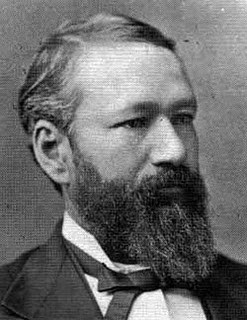|
'Separate But Equal' Lawbreaker Plessy Pardoned 130 Years Later
November 14, 2021
Homer Plessy may soon have a clean record, 130 years after the fact. Plessy's refusal to obey a law that mandated segregation in Louisiana railway cars led to a landmark 1896 Supreme Court decision motivated many in the civil rights movement. The Separate Car Act required railroads to separate the white and black races as they traveled on railway cars: Railroads had “white” cars and “colored” cars. This law was one of many that served to keep whites and blacks separate in public places. Plessy refused to leave a "white-only" car and was arrested. The result was a conviction and a fine, of $25. Plessy’s lawyers had argued that the State of Louisiana, through the Separate Car Act, had denied Plessy his rights under the Thirteenth Amendment and the Fourteenth Amendment. The judge, John Ferguson, thought otherwise, deciding that because the East Louisiana Railroad operated within the state of Louisiana, the state could regulate conduct aboard the railroad. The Louisiana Supreme Court upheld the decision, as did the U.S. Supreme Court, in Plessy v. Ferguson. So Plessy's guilty conviction stood. On Nov. 13, 2021, the Louisiana Board of Pardons voted to remove Plessy's conviction from the books. Arguing the case to do so before the Board of Pardons was the Orleans Parish district attorney, Jason Williams. In announcing its unanimous decision, the Board of Pardons referenced the Avery C. Alexander Act, a 2013 law that allows the governor to issue such a pardon for a person "who has been convicted of violating a state law or municipal ordinance the purpose of which was to maintain or enforce racial separation or discrimination of individuals." The law's namesake was a minister and civil rights leader who participated in many high-profile events, including the Selma to Montgomery marches and the March on Washington. He also served in the Louisiana House of Representatives for many years. All that is left is for Louisiana Gov. John Bel Edwards to authorize the pardon. Plessy died in 1925. He did not live to see the Supreme Court's issuance of the Brown v. Board of Education decision, which invalidated the "separate but equal" doctrine cited by the majority in the Plessy Supreme Court case. The law provides for the descendants of a deceased person to plead their ancestor's case. Two such descendants are Keith Plessy and Phoebe Ferguson, who trace their lineages to Homer Plessy and Judge Joseph Ferguson, respectively. The modern-day Plessy and Ferguson have created the Plessy and Ferguson Foundation, which focuses not only on the famous case and its participants but also on others who fought for civil rights through the years. |
|
Social Studies for Kids
copyright 2002–2024
David White





